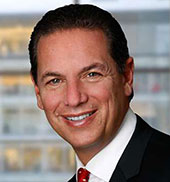In a rare showing of support for principles of federalism, the American Bar Association House of Delegates has adopted a resolution that recommends the rescheduling or de-scheduling of cannabis under the federal Controlled Substances Act (CSA) and calls on Congress to defer to the states in formulating their own cannabis policies.
The resolution urges Congress to:
- Enact legislation to exempt from the CSA any production, distribution, possession, or use of marijuana carried out in compliance with state laws;
- Remove cannabis from Schedule I of the CSA; and
- Encourage scientific research into the efficacy, dose, routes of administration, or side effects of commonly used and commercially available cannabis products in the United States.
The resolution was drafted by the ABA’s Task Force on Marijuana, Federalism, and Separation of Powers, which was formed by the ABA’s Criminal Justice Section in 2018.
A report on the resolution when it was in draft form identified areas of opposition within or outside of the ABA, including international trafficking of cannabis, overuse by minors and adults, and motor vehicle safety. The resolution neither addresses nor promotes international cannabis trafficking.
The report discusses the regulatory quagmire that has resulted from federal prohibition and the need for Congress to allow states to “opt out” of the CSA. It calls for removal of cannabis from Schedule I of the CSA in part to eliminate or reduce the barriers to scientific research on health effects.
There are currently multiple legislative proposals pending in Congress that would reschedule or de-schedule cannabis, including the Marijuana Opportunity Reinvestment and Expungement (MORE) Act, which has garnered significant attention since its introduction last month. Several bills have also been introduced to better understand the effects of cannabis and to allow and federally fund research into potential medical benefits and side effects of cannabinoids.
It is unlikely that federal regulatory agencies will move to reschedule or de-schedule cannabis or provide additional avenues for research without firm directives from Congress. Multiple senior officials in the Trump Administration — including several who object to legalization efforts — have called on Congress to take action to address the complex regulatory regimes that are stifling research and innovation in the industry.
Carl Rowley chairs the firm’s Mass Tort Practice and is a member of its Cannabis Practice. Jack Jacobson is a member of our Lobbying & Policy group and Cannabis group.
















